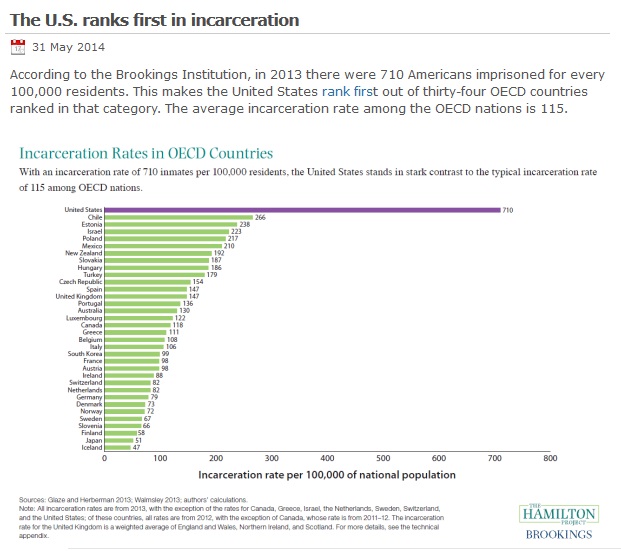Corporate Government
Net Neutrality to Banking – A Primer
May 11, 2015
Sometimes people keep on talking, writing and making videos or newscasts even when they realize that the enemies of mankind are too powerful at the moment to effect positive change. Ignorance, laziness or just having a problem with change itself may slow down the things that need to be done to make it a better world. Sometime even a polytician will make a bad deal for election contributions then they are stuck.
 But the tide is rising with millions of people getting interested in making this the world we want instead of the continuation of the lies and deceptions that have haunted us for hundreds of years and are haunting us now more than ever in the lives that are destroyed daily as a result of the greed and selfishness of a few.
But the tide is rising with millions of people getting interested in making this the world we want instead of the continuation of the lies and deceptions that have haunted us for hundreds of years and are haunting us now more than ever in the lives that are destroyed daily as a result of the greed and selfishness of a few.
As a result of being manipulated into thinking that war mongering is a staple of life on the planet earth. Is the world being brought to its knees or kept on its knees. Or are we just watching the result of the worlds view on the things that happen in the USA. Such as forming global banking institutions that don’t include the USA.
He probably did more with his life than I with mine, but I never was a big fan of the tactics of Churchill, but this I wholeheartedly agree:
(Western) Civilization Defined
“It means a society based upon the opinion of civilians, it means that violence, the rule of warriors and despotic chiefs, the conditions of camps and warfare, of riot and tyrant, give place to parliaments/(legislatures) where laws are made, and independent courts of justice in which over long periods those laws are maintained. That a civilization – and its soil grow continually freedom, comfort and culture. When civilization reigns in any country, a wider and less harassed life is afforded to the masses of the people.”
Who am I, just a guy that ordained to the supreme being or God way back in the late 60’s or early 70’s. Someone who’s passion is, (because for some reason I understood the goals or the Puritans and Pilgrims that did all the hard work for many years long before the money changers came to America and profitized us all) to help where I can. This was all a result of, not that the little church gave us breakfast on Sunday morning, but that they infected me with the power of love, kindness, brotherhood and a need for justice because it is the best way to help. There are many to believe in or follow, I just happened to choose Jesus as my partner.
The situations I write about are the situations that we must all deal with if we want a happy society instead of the nastiness of worshiping money.
For example, many happy and satisfying societies know and have known for a long time that if a society creates desperation they will have problems. Our answer seems to be to indoctrinate people to hate them that are desperate, chase them down, beat them down innocent or guilty doesn’t matter. Cage the desperate. Now we cage millions of people, ruin their lives long after we forgot to offer them alternatives: just, it seems, because it’s easier.


There is common ground between incarceration as an answer for creating desperation for so many, broadband access for all members of the human race as a human right, (as is already being done in many countries around the world), and paying a fee for caring for the health of the human species. In the United States everything must be corporatized! So that it can be dealt with under our Uniform Commercial Code rather than Common Law. Also leading to the corporatization of our government. To the extent, as you will read below, many in politics evidently do not trust the FCC to do the right thing(s) regarding broadband services in the USA.
Why is this worrisome? Because in all three areas it brings to mind that in history when one nation was conquering another and were trying to figure out what to do with the overabundance of people etc. They would usher them, by the thousands into a big field that had cliffs at its edges. As the more recent arrivals came in the ones that were there were pushed back. Maybe a half a mile back or so were steep cliffs and the strategy of the rulers was to make sure that the cliffs were far enough away that the new arrivals could not hear the screams of the ones falling off the cliffs far in the back. Then to add another level of treachery to the scheme they made a law that anyone that was caught or suspected of warning the others about the cliffs would be labeled “terrorists”.
Then wow, how about that it just keeps going, if the locals couldn’t rip you off they would make another law “civil forfeiture” and all of your goodies would be taken as a matter of fact of who’s in charge of the police crews. Their new “Due Process”. Which is why for years the leaders of and the people of the USA prevented an all consuming national police force. Because history tells us there would soon be small pockets of abuses that may grow to huge scale leading us to forget why we had “Due Process” in the first place.
Now they are confiscating cash – valuables during traffic stops without “Due Process”, will we soon be needing to buy confiscation insurance because they start taking our cars because we were speeding or had no seat belt on?
The origional design or desire of the Puritans and Pilgrims was that we do not have a society like was in Eurpoe where, like here now, millions of people falling off the cliffs. We want no one to fall or be pushed off the cliff.
Welcome to the corporatization of America.
And we mistakenly believe that there is a club of people in Washington D.C. or on Wall Street that are going to quickly and easily solve all of our problems. It looks more like they are just trying to create more.

And the reality all along has been that we are all going to have to pull together in our small towns and cities alike. Define the issues to the degree that we can solve the problems as phases and go for it.
Vote and or run for office, get involved and take back control of your city or town. Make the laws that suit the way you want to live instead of what is dictated to us from afar. Because it seems that the professional politicians are not connected anymore.
But first how about a joke:
 A Shadow Government Corporate Police State Officer stops at a farm in the USA, and talks with an old farmer.. He tells the farmer, “I need to inspect your farm for any patriotic or ANTI greedy corporate government activity.”
A Shadow Government Corporate Police State Officer stops at a farm in the USA, and talks with an old farmer.. He tells the farmer, “I need to inspect your farm for any patriotic or ANTI greedy corporate government activity.”
The farmer says, “Okay , but do not go in that field over there,” as he points out the location.
The Police State Officer verbally explodes saying, “Mister, I have the authority of the Federal Government with me.” Reaching into his rear pants pocket, he removes his badge and proudly displays it to the farmer. “See this badge? This badge means I am allowed to go wherever I wish…. On any land.. No questions asked or answers given. Have I made myself clear? Do you understand? ”
The farmer nods politely, apologizes, and goes about his chores.
A short time later, the old farmer hears loud screams and sees the Police State Officer running for his life chased by the farmer’s Biggest Daddy Bull……
With every step the bull is gaining ground on the officer, and it seems likely that he’ll get gored before he reaches safety. The officer is clearly terrified.
The farmer throws down his tools, runs to the fence and yells at the top of his lungs…..
“Your badge… Show him your badge!!”
+++++++++++++++++++++++++++++
 The recent events regarding Net Neutrality are a great show to watch. The announcement (see below) by the Commissioner of the FCC was released several weeks ago. Then a few weeks ago the House of Representatives has a bill that was brought forth Called the “Internet Freedom Act”….Woohoo… to put “Limitation of Authority of FCC”…
The recent events regarding Net Neutrality are a great show to watch. The announcement (see below) by the Commissioner of the FCC was released several weeks ago. Then a few weeks ago the House of Representatives has a bill that was brought forth Called the “Internet Freedom Act”….Woohoo… to put “Limitation of Authority of FCC”…
(a) In General.–The rule adopted by the Federal Communications Commission in GN Docket No. 14-28 on February 26, 2015 (relating to broadband Internet access service) shall have no force or effect, and the Commission may not reissue such rule in substantially the same form, or issue a new rule that is substantially the same as such rule, unless the reissued or new rule is specifically authorized by a law enacted after the date of the enactment of this Act.
(b) Exception.–This section does not apply to any rule that the Federal Communications Commission determines necessary–
(1) to prevent damage to the national security of the United States;
(2) to ensure the public safety; or
(3) to assist or facilitate any actions taken by a Federal or State law enforcement agency.
(c) Rule Defined.–In this section, the term “rule” has the meaning given such term in section 804 of title 5, United States Code.
Never a dull moment in the good ole USA.
Then like I mentioned before here is the statement by the FCC Commissioner.
Ever side is telling us that we cannot trust the other side? Why is this plan a secret – Why aren’t the people of the USA allowed to know?
FCC Commissioner Ajit Pai Press Statement on President Obama’s Plan to Regulate the Internet
 NEWS
NEWS
Federal Communications Commission
445 12th Street, S.W.
Washington, DC 20554
This is an unofficial announcement of Commission action. Release of the full text of a Commission order constitutes official action.
See MCI v. FCC, 515 F.2d 385 (D.C. Cir. 1974).
News Media Information: (202) 418-0500
Internet: http://www.fcc.gov
TTY: (888) 835-5322
FOR IMMEDIATE RELEASE CONTACT:
February 10, 2015 Matthew Berry: (202) 418-2005
Email: Matthew.Berry@fcc.gov
PRESS STATEMENT OF FCC COMMISSIONER AJIT PAI ON PRESIDENT OBAMA’S PLAN TO REGULATE THE INTERNET
The American people are being misled about President Obama’s plan to regulate the Internet. Last week’s carefully stage-managed rollout was designed to downplay the plan’s massive intrusion into the Internet economy and to shield many critical details from the public. Indeed, Chairman Wheeler has made it clear that he will not release the document to the public even though federal law authorizes him to do so.
I believe the public has a right to know what its government is doing, particularly when it comes to something as important as Internet regulation. I have studied the 332-page plan in detail, and it is worse than I had imagined.
 So today, I want to correct the record and explain key aspects of what President Obama’s plan will actually do.
So today, I want to correct the record and explain key aspects of what President Obama’s plan will actually do.
First, the claim that President Obama’s plan to regulate the Internet does not include rate regulation is flat-out false. The plan clearly states that the FCC can regulate the rates that Internet service providers charge for broadband Internet access, for interconnection, for transit-in short, for the core aspects of Internet services. To be sure, the plan says that the FCC will not engage in what it calls ex ante rate regulation. But this only means that the FCC won’t set rates ahead of time. The plan repeatedly states that the FCC will apply sections 201 and 202 of the Communications Act, including their rate regulation provisions, to determine whether the prices charged by broadband providers are “unjust or unreasonable.” The plan also repeatedly invites complaints about section 201 and 202 violations from end-users and edge providers alike. Thus, for the first time, the FCC would claim the power to declare broadband Internet rates and charges unreasonable after the fact. Indeed, the only limit on the FCC’s discretion to regulate rates is its own determination of whether rates are “just and reasonable,” which isn’t much of a restriction at all.
Lest anyone take comfort in the notion that the FCC will allow the market to set prices through competition, the plan goes out of its way to reiterate its view that competition is limited. And it uses the FCC’s new 25 Mbps yardstick for broadband to claim that competition doesn’t exist for a majority of Americans. To think that rate regulation and other utility-style regulation will not happen in the face of such findings is naïve.
Second, President Obama’s plan targets pro-competitive broadband service offerings, both actual and potential, that benefit consumers. The plan expressly states that usage-based pricing, data allowances-really, any offers other than an unlimited, all-you-can-eat data plan-are now subject to regulation. Indeed, the plan finds that these practices will be subject to case-by- case review under the plan’s new “Internet conduct” standard. That standard evaluates at least seven vaguely defined factors in determining whether a practice is allowed. The plan makes clear that these practices are now on the chopping block, with those of mobile operators under special scrutiny. This means that consumers who use less data may end up subsidizing consumers who use more data. Moreover, the President’s plan goes 2out of its way to say that sponsored-data plans and zero-rating programs, like T-Mobile’s Music Freedom offering, may violate the new standard for Internet conduct. Preventing companies from differentiating themselves from the competition by giving consumers a wide variety of options will mean less choice and less free data for consumers. If you like your current service plan, you should be able to keep your current service plan. The FCC shouldn’t take it away from you.
Third, President Obama’s plan gives the FCC broad and unprecedented discretion to micromanage the Internet. The plan gives a Washington bureaucracy a blank check to decide how Internet service providers deploy and manage their networks, from the last mile all the way through the Internet backbone. Take interconnection as just one example. The plan states that the FCC can determine when a broadband provider must establish physical interconnection points, where they must locate those points, how much they can charge for the provision of that infrastructure, and how they will route traffic over those connections. That is anything but light touch regulation. And the plan extends the FCC’s interventionist gaze well beyond this part of the network. Small wonder that some pro-regulation activists are already deeming the FCC the “Department of the Internet.”
Fourth, the President’s plan is a gift to trial lawyers. The plan allows class-action lawsuits- with attorneys’ fees-should any trial lawyer want to challenge an Internet service provider’s network management practices or rates. Indeed, the plan expressly declines to forbear from sections 206 and 207 of the Act, which authorize such private rights of action. And it adopts a theory of broadband subscriber access services-that is, services that broadband providers supply to edge providers-that would allow anyone online to file a complaint or go to court. The end result will be more litigation and less innovation.
Fifth, the President’s plan makes clear that more utility-style regulation is coming. In discussing additional rate regulation, tariffs, last-mile unbundling, burdensome administrative filing requirements, accounting standards, and entry and exit regulation, the plan repeatedly states that it is only forbearing at this time. The plan is quite clear about the limited duration of its forbearance determinations, stating that the FCC will revisit the forbearance determinations in the future and proceed in an incremental manner with respect to additional regulation. In other words, over time, expect regulation to ratchet up and forbearance to fade.
Sixth, President Obama’s plan to regulate the Internet explicitly opens the door to billions of dollars in new taxes on broadband. The plan repeatedly states that it is only deferring a decision on new broadband taxes (such as Universal Service Fund fees and Telecommunications Relay Service fees, among others)-not prohibiting them. And it takes pains to make clear that nothing in the draft is intended to foreclose future state or federal tax increases. Indeed, the plan engages in the same two-step we saw last year with respect to the E-Rate program: Lay the groundwork to increase taxes in the first order, and then raise them in the second. One independent estimate puts the price tag of these and other fees at $11 billion.
In the end, when you compare what the American public is being told about President Obama’s plan to regulate the Internet with the actual text of that plan, these and other discrepancies become apparent. That makes it all the more important for the FCC to let the American public see the plan before the FCC makes it the law. We should be able to have an open, transparent debate about the President’s plan.
 FACT SHEET: PRESIDENT OBAMA’S PLAN TO REGULATE THE INTERNET
FACT SHEET: PRESIDENT OBAMA’S PLAN TO REGULATE THE INTERNET
On February 5, 2015, Chairman Wheeler circulated to his fellow Commissioners President Obama’s 332-page plan to regulate the Internet.
Here are some key aspects of that plan:
Through broad and vague rules, President Obama’s plan gives the FCC the power to micromanage virtually every aspect of how the Internet works.
Instead of allowing the American people to choose the broadband service plan that is best for them, the President’s plan places that decision in the hands of a Washington bureaucracy.
The plan curtails the ability of broadband providers to offer innovative service plans. For example, the rules jeopardize the future of T-Mobile’s Music Freedom program.
The plan also explicitly calls into question usage-based pricing. This means that broadband subscribers who use less data could end up subsidizing subscribers who use more data.
President Obama’s plan opens the door to billions of dollars of new taxes on broadband.
Following a transition period, the plan contemplates adding assorted regulatory taxes to Americans’ broadband bills, including fees to support the multi-billion-dollar Universal Service Fund and the Telecommunications Relay Service Fund.
These taxes will increase the prices American consumers will have to pay for broadband.
President Obama’s plan contains rate regulation.
All rates charged by broadband providers will be subject to FCC regulation. Specifically, they must be “just and reasonable” pursuant to section 201 of the Communications Act. The plan does not forbear from any aspect of this statutory provision.
This requirement will apply both to retail rates for consumers and interconnection rates for edge providers. It will embroil the Commission in an endless series of disputes that the agency is ill-suited to resolve.
President Obama’s plan will steadily increase regulation over time.
The plan does not safeguard the Internet from additional regulations. Instead, it takes what it describes as an incremental approach to imposing those new regulations.
Some of the plan’s new Internet regulations will go into effect immediately. Others will not take effect at this time or for now, making clear that the President’s plan contemplates even more rules in the future. This undermines regulatory certainty and will leave consumers poorer, step by step.
President Obama’s plan will be a boon to trial lawyers and will lead to more litigation.
The plan allows trial lawyers to file everything from individual lawsuits to sprawling class actions against broadband providers for any practices or charges they believe to be unreasonable.
These litigation costs, including attorneys’ fees, will be passed on to consumers in the form of higher prices.
President Obama’s plan will reduce competition and decrease consumer choice.
The plan imposes a host of new regulations on broadband providers. The costs of these regulations will hit smaller broadband providers the hardest and push them out of the market. For example, many of them will face higher pole attachment rates.
The plan implements Title II public-utility regulation that was designed for a monopoly. A one-size-fits-all regulatory framework intended to regulate a monopoly will push the broadband market in that very direction.
President Obama’s plan will slow broadband speeds for American consumers and the deployment of high-speed broadband.
The plan contains a bevy of new regulations that will depress investment in broadband networks. That will mean slower broadband speeds for American consumers. It will also mean that many rural Americans will have to wait longer for access to quality broadband.
Public-utility regulation has been shown to decrease infrastructure investment. In the United States, where we have embraced a light-touch regulatory framework, there has been far more investment per capita in broadband than there has been in Europe, which has embraced a public utility model.
Fractional Reserve Lumber Yard – how to get really rich really quick.
 An introduction to our fractional reserve banking system. Because the balance and result has been tilted against humankind.
An introduction to our fractional reserve banking system. Because the balance and result has been tilted against humankind.
You walk into a lumber yard and use a credit card to buy a 10 foot 2×4. The lumber yard says great, you pull out a credit card, the interest on the card is 8% interest which you agreed to when you first got the card.
The lumber yard doesn’t ever really have to have 10 feet of 2×4.
In the fractional reserve lumber system they only have to have 1 foot of two by four. When you go through the checkout there has already been a deal made with the government, via their authorization of the Federal Reserve Lumber System that they will supply or allow the lumber yard to give you the 10 foot 2×4 and they will cover for the other 9 feet of 2×4 that you need via an IOU.
Now let’s say that the 10 foot 2×4 you want costs you $100. The lumber yard is going to supply 1 foot of the lumber and the government will allow the supplying of the other 9 feet of lumber via an IOU. They will back it and the lumber yard will give it to you (the other 9 feet of lumber plus the one foot of lumber totaling a 10 foot 2×4) in the name of the lumber yard. Because the lumber yard has made a deal to be obedient to the fractional reserve lumber system and the rulers of that system in exchange for sharing the profits.
Now let’s remember the interest you are paying the lumber yard is 8%. The amount of lumber you are really getting from the lumber yard is only 1 (one) foot, the rest, the other 9 feet is approved and delivered as part of the 10 foot 2×4 via an IOU and is really supplied by the fractional reserve lumber yard system backed by taxpayer dollars and assets. So in essence you are paying 8% interest to the lumber yard for 1 (one) foot of lumber or $8.00 per year (uncompounded, compounded would be much higher) for the $10 dollars they have invested in the 1 (one) foot of lumber.
Let’s do some simple math; If the lumber yard holds the note for the loan for 5 years, at simple interest they have made $40.00 for the $3.00 (wholesale) they had invested in the 1 (one) foot of lumber or $8.00 “per year” interest on the $3.00 (their share of the total investment).
More simply put, you paid $100.00 plus 5 years simple interest at 8% which is $40.00 so the first year you paid $108.00 for what the lumber yard paid $3.00 for in the first place.
If the lumber yard paid $10.00 for that foot of lumber they have still made (borrowed via IOU, I say made because if they are incompetent or screw up the government allows them to take your house, your car, your pensions and your money so they suffer no losses.) $90.00 instantly and $8.00 interest yearly and they only had $3.00 risk.
All of this is backed by you the tax payer and if the system breaks down they will take your house your pensions your stock, they will legally take everything they can to shore up their books.
If the above story were true the lumber yards would soon rule the world.
Or better than that we all should get into the banking business.
Our banking system is a fractional reserve system, much like the story I outlined above.
The banks make loans and huge profits on the guarantee that YOU will pay the losses. They are the only business that offers very little in product or service yet they take the majority of the money out of our economic system regularly and daily.
They remove their profits regularly so it is impossible for them to be attached.
So lets look at another very loose example.
Simplistically, You go in a bank and borrow $100,000 to buy a house at 8% interest. As a result of the 30 mortgage you agreed to you will pay a total of $300,000 and own the house, unless the banking club and their friends do something stupid in the marketplace and they need money then they are going to take your house and keep the money too.
At the very minute you signed the mortgage you have added assets to the bank and they could loan out the asset you created at a profit of $8.00 for every ten dollars you agreed to pay them back…because they only have to have $10,000 to loan you $100,000. For the $100,000 or their $10,000 they will make $8,000 PER YEAR and they only had to put $10,000 into the game.
If they are able to use the full $300,000 as an asset on the books they could make 30 more of the same loans at a profit of $240,000 PER YEAR off of your promise to pay the $300,000.
That my friends is the reason why the banking system is one that will change in the coming years. We can easily attribute millions of people in pain and hundreds of thousands if not millions of of people dying every year as a result of this antiquated system. Especially when you consider that they have more money than the need now and the system was intended to be changed long ago.
Or we just let them cause the next human extinction.
It’s easy to see why they fight so hard to keep their system in place.
Short history of the banking industry in the USA.
 memo sent out by the American Bankers Association 1894,
memo sent out by the American Bankers Association 1894,
“On September 1st 1894 we will not renew our loans under any consideration. On September 1st we will demand our money. We will foreclose and become mortgagees in possession. We can take two- thirds of the farms west of the Mississippi, and thousands of them east of the Mississippi as well, at our own price…Then the farmers will become tenants as in England…,” 1891 American Bankers Association, as printed in the Congressional Record of April 29, 1913.
Be Peace
Good Luck
God Bless

Michael Banker